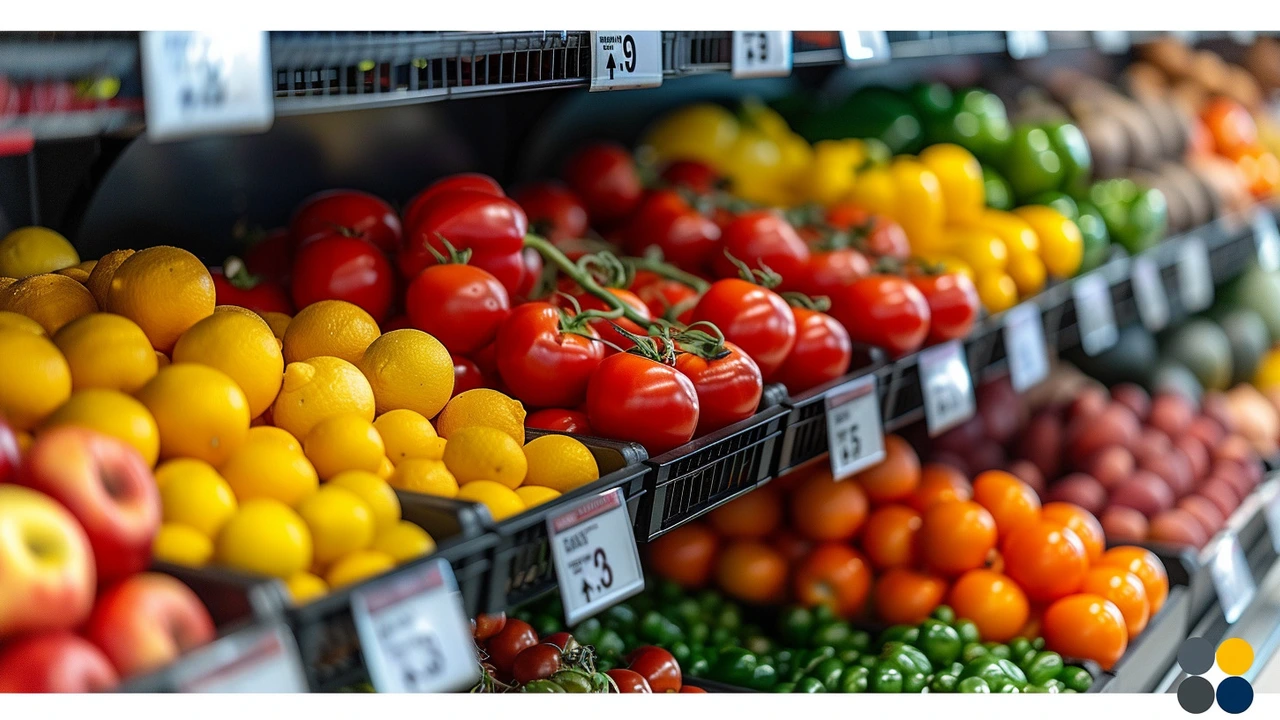Know Your Nutrients: Eating for Health and Wellness
Before we get into the fluff and stuff about building your ultimate shopping list for a healthy diet, I want you to take a moment to consider why you’re doing this. Is it to lose weight? Feel better in your own skin? To outlive the cockroaches in an apocalypse scenario? Whatever your motivations may be, eating healthily is essential and empowering. So congratulations on making the decision to put your health on the front burner - where it deserves to be!
Now, back to business. Unfurling the first aspect of our healthy grocery list, we have nutrient-dense foods. These are the kinds of foods that pack a lot of bang for their dietary buck, offering you a plethora of vitamins, minerals, fiber, and other nutrients crucial for your well-being.
Start from the produce section. Load up on a variety of fruits and vegetables. Color is key – the more varied in color your fruits and veggies are, the wider the range of nutrients you're getting. So don’t shy away from those purple carrots or yellow tomatoes. Go for those leafy greens like spinach, kale, and swiss chard. Don't forget your broccoli, bell peppers, and Brussels sprouts. As for fruits, go for apples, oranges, berries, kiwi, and pineapples.
You know those hearty whole grains you’ve been telling yourself you should eat more of but haven't yet because white bread tastes so good? Let's take a moment and show them some love. Whole grains provide fiber, protein, and a trove of other nutrients. Look out for brown rice, quinoa, oats, whole grain bread and pasta. Befriend legumes like beans, lentils, chickpeas for their high fiber and protein content. Also, let's not forget the nuts and seeds! Almonds, walnuts, chia seeds, flaxseeds, they're nutrition powerhouses that provide good fats.
Feeding Your Proteins: Meat and Plant-based Alternatives
Moving on, let's talk protein. Now don’t get me wrong, I love a good steak just as much as the next Australian. And there's no denying that lean meat is a splendid source of protein. But let's broaden our horizons a bit and explore other sources of protein too.
If you're an animal protein lover, low-fat dairy products, eggs, lean chicken breast, turkey, fish, and seafood should be on your radar. And for vegetarians or vegans out there, fret not. There are plenty of plant-based proteins that are excellent for you. Tofu, tempeh, edamame, seitan, lentils, and chickpeas are fantastic sources of plant-based protein. Remember, variety is important. You want to ensure you're getting a broad spectrum of nutrients that different protein sources offer.
Now, let’s chat about seafood. Not only is it delicious, but it’s also fantastically healthy. Fatty fish like salmon, mackerel, tuna, and sardines are loaded with Omega-3 fatty acids. This heart-healthy nutrient is something our bodies can’t make on its own. We depend on our diet to supply them, so don't forget to add these fish to your grocery list.
Hydration Haven: Stay Refreshed and Replenished
Okay, folks, the secret's out. Next on our list, we have hydration. I know hydration might not sound like the most glamorous part of a healthy diet, but stay with me - it's key. Our bodies are about 60% water. We need to stay hydrated for our bodies to function properly.
I'm sure you've heard the phrase "water is the best drink for your body," and it's totally true. But let's be real here, drinking plain water all the time can get a bit...well, dull. So let's spice things up a bit. No, not literally with spice; I mean mix up your hydration game. Infuse your water with fruits or herbs for a hint of flavor. Herbal teas and fruit teas are also excellent ways to stay hydrated and they don't have to be served hot. Chill them and serve over ice for a refreshing alternative to plain water.
Reading and Decoding Food Labels: The Secret Language of the Supermarket
Finally, we come to the last section of our guide – understanding food labels. Knowing how to read and decode food labels can greatly assist you in your pursuit of a healthy diet. Remember, just because a label says "low-fat" or "light" doesn't mean it's healthy.
You'll want to pay close attention to portion sizes, calories, and nutrient content. Try to avoid products high in sodium, sugar, and trans fats. Always aim for foods with ingredients you can recognize and pronounce.
Remember that store-bought can never beat home-cooked when it comes to health and nutrition. So whenever possible, try to opt for fresh, whole ingredients to whip up your own meals. Trust me, your body will thank you.
Shopping healthily does not mean foregoing all sweets and guilty pleasures. The key here is moderation. It's perfectly fine to sprinkle in a little guilty pleasure here and there. The sky will not fall, I guarantee it. But the bulk of our diet should consist of nutrient-dense, whole, and fresh foods.
To wrap it up, becoming a more conscious and mindful shopper can make a huge difference in our health and wellbeing. It’s not something that happens overnight, but with practice and perseverance, it can become second nature. Remember, every small step towards healthier eating habits counts! So, are you ready to hit the supermarket and rock your shopping list?
